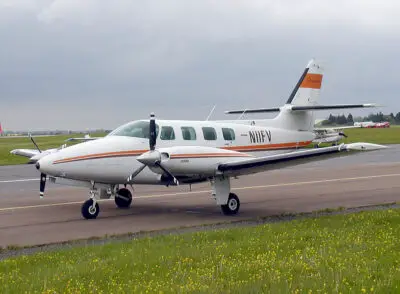A Dutchess County judge has ruled that Textron Aviation Inc. can be sued in New York for a 2019 fatal plane crash in Lagrangeville.
The family of Gerard Bocker, in whose house a Cessna T303 Crusader crashed, sued Textron and other corporations in Dutchess Supreme Court in 2021 seeking compensation for alleged wrongful death of Mr. Bocker and injuries to other family members.

Textron, which acquired Cessna Aircraft Company after the T303 was built, argued that New York courts have no jurisdiction, in part, because the company is based in Kansas.
“This litigation involved the crash of a T303 in New York State by a pilot who was a resident of New York State, where the plane was hangared in New York State and the plaintiffs are residents of New York State,” Justice Thomas R. Davis ruled on Aug. 27. “It is not only fair but proper for New York State to exercise personal jurisdiction over Textron.”
Francisco A. Knipping-Diaz, a criminal defense attorney who lived in Woodmere, Nassau County, was piloting the Cessna on Aug. 17, 2019. He flew with two passengers from Republic Airport in Farmingdale, where the plane was kept, to Orange County Airport, in Montgomery, for a business meeting.
After the meeting he flew to Sky Acres Airport in Lagrangeville to refuel.
The Cessna T303 is a twin-engine aircraft that, according to court records, is notoriously difficult to control when it loses power. Shortly after takeoff from Sky Acres Airport, for the trip back to Long Island, the plane allegedly lost engine power at a low altitude and was unable to climb.
Knipping-Diaz was unable to straighten out the T303 as it rolled left and crashed into the Bocker house about 1,900 feet from the end of the runway. The plane burst into flames and ignited the house.
Gerard Bocker, 61, and Knipping-Diaz, 65, were killed in the fire. Bocker’s daughter, Hannah, 21, was burned over 88% of her body. Sarah Bocker, 29, escaped. The two passengers, Teofilo Antonio Diaz-Pratt and Eduardo Jose Tio, were injured. The house was destroyed.
The surviving Bocker family members, including his son and wife who were not at the house when the plane crashed, sued Textron. They are charging strict liability, negligence, and breach of implied warranty, claiming that the aircraft’s fuel system, engines and handling characteristics were defective and that Textron failed to warn owners of the defects.
Textron argued that New York courts have no jurisdiction over this matter and the case should be dismissed.
Its principal place of business is Kansas and all 300 T303s manufactured from 1981 to 1985 were built there. From 2016 to 2022, the years covered by the lawsuit, it sold no twin engine piston aircraft in New York, sold no T303 parts in New York and provided no service for T303 planes in New York.
The T303 in this case was built in 1984 and repeatedly changed hands. When it crashed, it was owned by a Delaware company for which Textron provided no maintenance or warranty services.
The Bockers argue that Textron has a significant presence in New York. From 2016 to 2022 it sold piston-engine planes worth $9.8 million and from 2018 to 2022 sold more than $8.9 million in parts. Cessna operates a service center with round-the-clock support at Stewart Airport, New Windsor (though only for jets). It has four authorized service partners in New York. More than 2,800 Textron piston aircraft are registered in New York, including three T303s.
The only question, judge Davis stated in his opinion, is whether the family’s claims relate to Textron’s activities in New York, or whether a legal precedent allows the court to exercise jurisdiction over Textron.
“This court,” he said, “answers both questions in the affirmative.”
He quoted a 2021 U.S. Supreme Court decision, in Ford Motor Co. vs. Montana Eighth Judicial District Court, regarding a fatal car crash.
Justice Elana Kagan wrote: “States have significant interests at stake – ‘providing [their] residents with a convenient forum for redressing injuries inflicted by out-of-state actors,’ as well as enforcing their own safety regulations.”
Textron notified judge Davis on Sept. 6 that it intends to appeal his decision.


















